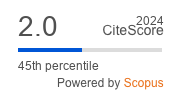Assessing the Impact of Career and Life Design through Innovative Hybrid Evaluation and Digital Storytelling
DOI:
https://doi.org/10.23726/cij.2024.1579Keywords:
Evaluation, Life Design, Designing FuturesAbstract
This paper outlines the innovative integration and evaluation of a for-credit Life Design module within the formal curriculum of a university in Ireland, the first time Life Design has been introduced for academic assessment in this context. The module forms part of a larger project at the University of Galway, Designing Futures (DF), which has been funded by the Irish Government (€7.5m, 2020-2025) to support student entrepreneurship, innovation and cross-disciplinary and research-led learning. Furthermore, DF is concerned with the rounded and holistic formation of the student, including supporting them in discerning their personal and professional life goals. The Life Design module facilitates this specific aspect of the DF project, engaging students with a diverse set of Life Design tools as they encounter key life concepts and questions, helping them to figure out how to get more out of the college experience and what they might choose to do upon graduation. This article is focusing on how the Design Your Life module has been designed and refined since its introduction in 2021-2022. The iterative design of the Life Design module has been underpinned by assessment and evaluation. The discussion illustrates how student feedback and learning have been ascertained and assessed. This includes the use of innovative digital storytelling as a narrative mode of assessment, one that we have found is well-suited to the process-oriented, personal and professional development goals of Life Design. While this paper predominantly focuses on undergraduate education in a university setting, the assessment and evaluation strategies, heuristics and digital storytelling outlined here can be adopted and adapted to develop and enhance Life Design innovations in diverse contexts beyond college education.
References
Burnett, B., & Evans, D. (2018). Designing Your Life: Build the Perfect Career, Step by Step. London: Vintage.
Hall, T., Millar, M., & O’Regan, C. (2024). (Re)Discovering the treasure within – The contribution of a Design Your Life Module to Undergraduate Education. In: Proceedings of HEAd ‘24: 10th International Conference on Higher Education Advances, Universitat Politècnica de València (Spain), 18th – 21st June 2024. Best Paper Award Winner. https://doi.org/10.4995/HEAd24.2024.17139.
Jamissen, G., Hardy, P., Nordkvelle, Y., & Pleasants, H. (Eds.). (2017). Digital Storytelling in Higher Education: International Perspectives. Switzerland: Palgrave.
Lorenz, T., Beer, C., Pütz, J., & Heinitz, K. (2016). Measuring Psychological Capital: Construction and Validation of the Compound PsyCap Scale (CPC-12). PLoS ONE 11(4): e0152892. https://doi.org/10.1371/journal.pone.0152892
Thompson Long, B., & Hall, T. (2015). R-NEST: Design-based research for technology-enhanced reflective practice in initial teacher education. Australasian Journal of Educational Technology, 31(5). https://doi.org/10.14742/ajet.2535
Tomlinson, M. (2017). Forms of graduate capital and their relationship to graduate employability. Education + Training, 59(4), 338-352. https://doi.org/10.1108/ET-05-2016-0090
Tripp, D. (1993). Critical incidents in teaching: Developing professional judgement. London: Routledge.
Downloads
Published
How to Cite
Issue
Section
Categories
License
Copyright (c) 2024 Prof Tony Hall, Prof Michelle Millar, Dr Connie O'Regan

This work is licensed under a Creative Commons Attribution 4.0 International License.
Authors who publish with this journal agree to the following terms:
- Authors retain copyright and grant the journal right of first publication with the work simultaneously licensed under a Creative Commons Attribution License that allows others to share the work with an acknowledgement of the work's authorship and initial publication in this journal.
- Authors are able to enter into separate, additional contractual arrangements for the non-exclusive distribution of the journal's published version of the work (e.g., post it to an institutional repository or publish it in a book), with an acknowledgement of its initial publication in this journal.
- Authors are permitted and encouraged to post their work online (e.g., in institutional repositories or on their website) prior to and during the submission process, as it can lead to productive exchanges, as well as earlier and greater citation of published work (See The Effect of Open Access).


